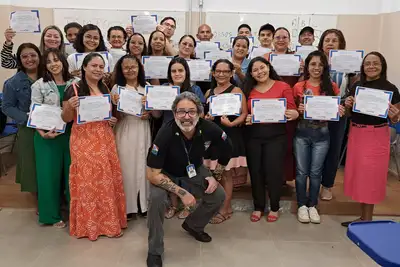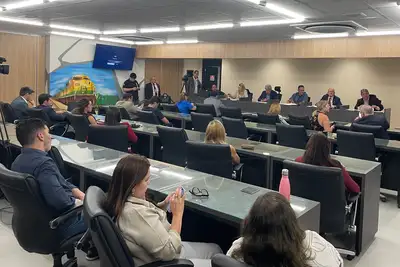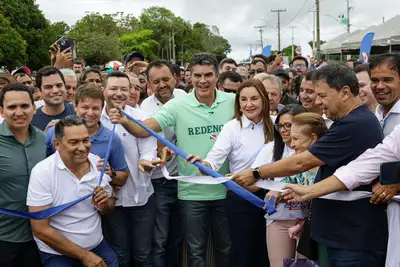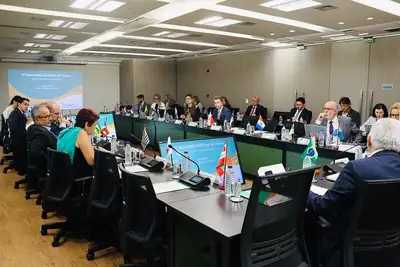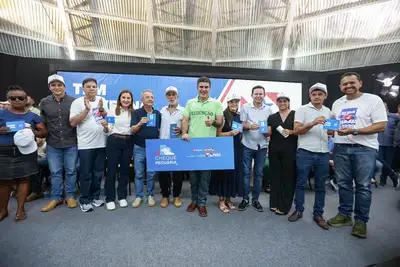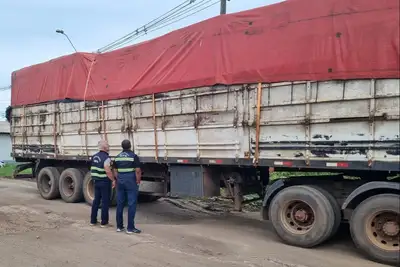“Come Birdwatching” brings citizen science to Utinga Park at COP30
In total, participants spotted approximately 59 species, revealing the vitality of the ecosystems surrounding the Bolonha and Água Preta lakes.

It was still 6 AM when groups began to gather in front of the Reception Center of the Utinga State Park in Belém. In attentive silence, but with curious eyes, Brazilians from different regions and visitors from countries such as the United States, Belgium, and New Zealand awaited the start of the Come Birdwatching at COP30, a special edition promoted by the Forest Development and Biodiversity Institute of Pará (Ideflor-Bio) and the Birdwatching Club of Pará (Coapa). The Amazonian dawn, with its own sounds and movements, seemed to announce that Saturday (15) would be a day of discoveries and celebration of urban biodiversity.
The walk, which lasted about four hours along the trails of Utinga, practically demonstrated why the Park is considered one of the largest wildlife refuges in urban areas in Brazil. In total, participants spotted approximately 59 species, revealing the vitality of the ecosystems surrounding the Bolonha and Água Preta lakes. In addition to enchanting, each record contributed to the continuous monitoring of the local avifauna, strengthening citizen science and environmental management of the territory.

Plurality - The diversity of the audience was striking. There were people from Rio Grande do Sul, Mato Grosso, São Paulo, the United States, New Zealand, Belgium, Pará, and many other origins. Among beginners and experienced observers, birdwatching once again showed its strength as a tool for regenerative tourism, capable of boosting the economy, generating income, and creating new relationships with the forest. The atmosphere was one of welcome and discovery, with people of all ages walking side by side, united by curiosity and care for nature.
At the end of the route, Coapa organized a themed fair that filled the space with books, crafts, art, and lively conversations about the species observed. The audience also had first access to the new institutional video of the Club, presented in the Park's auditorium. For Coapa's president, Gustavo Melo, the moment symbolized the reach and maturity of the movement.

“The Come Birdwatching at COP30 was a grand event, the result of the partnership between Coapa and Ideflor-Bio. We gathered about 50 people from various regions of Brazil and diverse nationalities — from Ghana, the USA, the Netherlands — to explore Utinga Park in search of avifauna. We concluded with an art exhibition, a fair, and the launch of our institutional video. It was a day of celebration and integration,” he highlighted.

Belonging - The manager of the Administrative Region of Belém at Ideflor-Bio, Júlio Meyer, emphasized that the action consolidates an essential role of the Park. “Utinga is a living space for environmental education, science, and connection with the city. By supporting events like Come Birdwatching, Ideflor-Bio strengthens a sense of belonging and shows that conserving biodiversity also means bringing people closer to the daily life of the forest,” he stated.
Among the participants, the experience also left marks of awareness. For Surya, who is from Minas Gerais, a nomadic artist and has been part of Coapa since last year, participating in the fair with the sale of books and bird art, the activity deepened her perception of the role of birdwatching. “An event of this importance demonstrates the direct connection between birdwatching and environmental conservation. Observing birds is a movement of listening to the forest, connecting people of different ages to the Park. This contributes to monitoring species and understanding their natural behaviors,” she said. According to her, the moment was one of “learning and practical connection at a time when the socio-environmental agenda is so present in Belém.”

The environmental analyst at Ideflor-Bio, Sabrina Campos, adds that the program reinforced throughout the morning that the culture of birdwatching in Pará goes far beyond leisure. “It articulates knowledge, belonging, community strengthening, and ecosystem protection. With free and accessible activities, birdwatching expands access to nature and stimulates new perspectives on urban territory, showing that the Amazon also pulses within cities,” she concluded.








